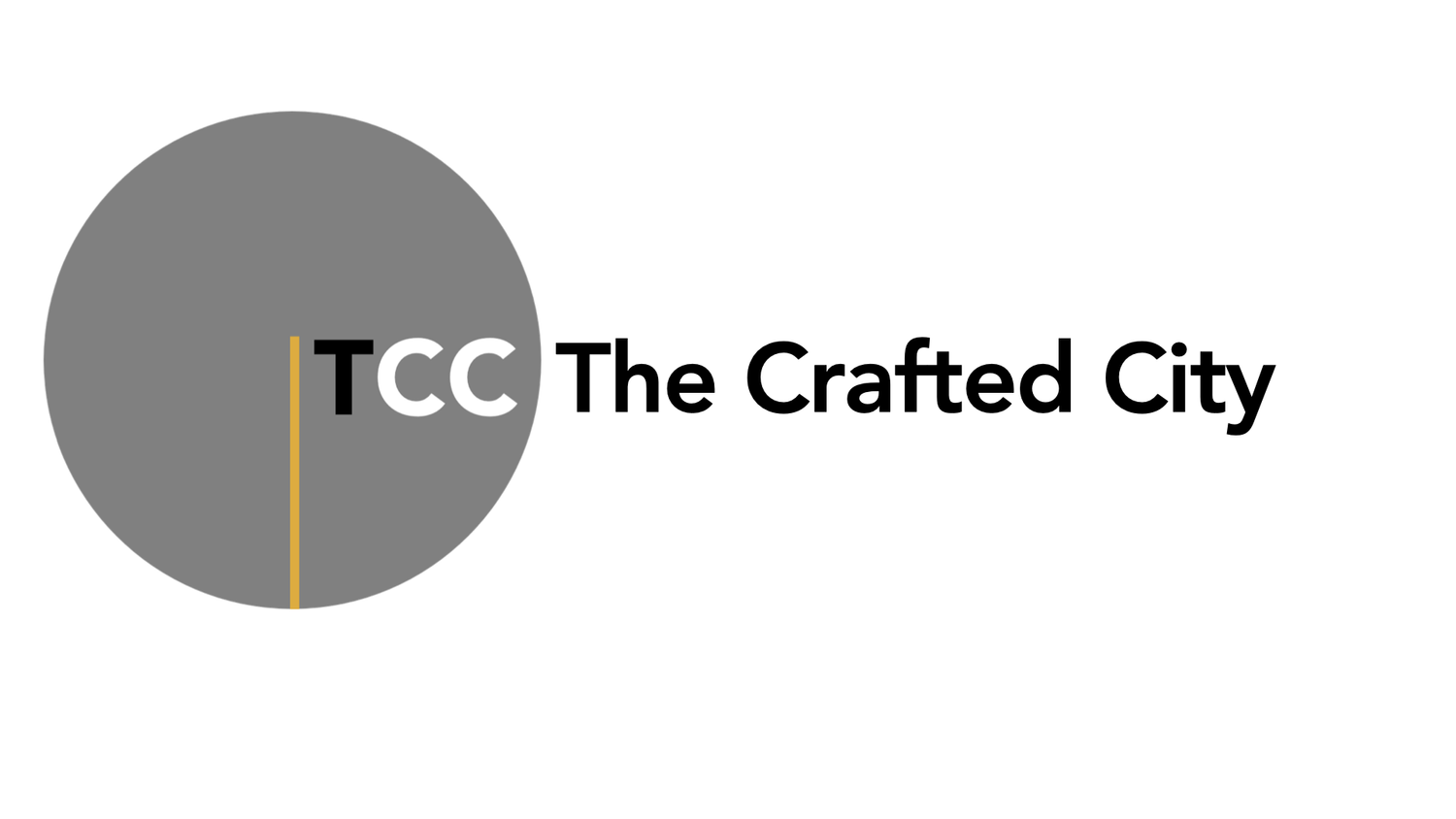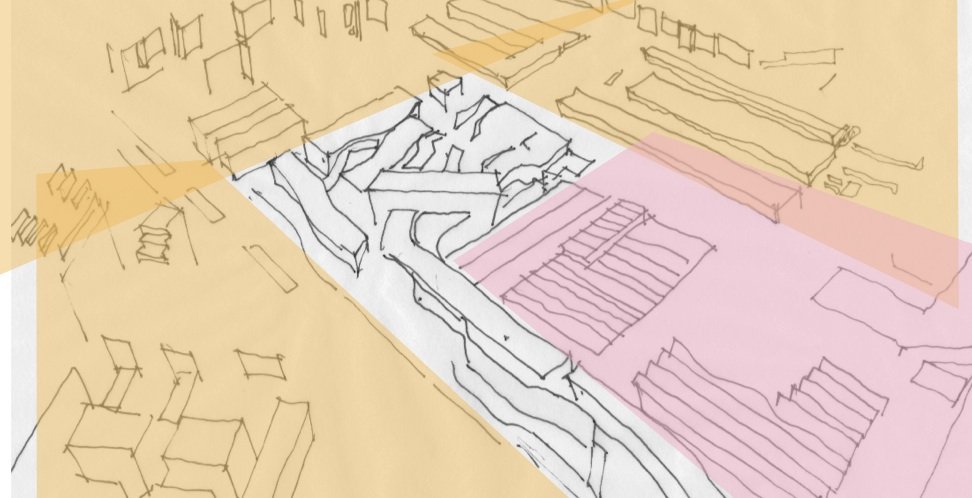THE CRAFTED CITY ARCHIVES
THE NEW ROUTEMASTER
Busses are not good urban citizens. They do carry a lot of people at a relatively low cost, but there are a lot of things they don't do well: they don't play well with other vehicles, they are a menace to pedestrians, they don't maneuver very well, they are a visual blight. They serve a specific need in public transportation, but over the years as transportation agencies have tried to control costs, buses have turned into hissing, grunting leviathans.
UN-CRAFTED CITY
"Without identity, a sense of both personal and community pride is lost. Though the various posters that are up around the city advertising new developments present them in a nice, clean, friendly and liveable condition, the architectural production they depict seems to lack inspiration."
A TALE OF TWO CITY PROJECTS
Two projects, similar types of urban design philosophies, one loved, the other… not.
CITIES ON THE EDGE
"Cities are brokers of complex truths, the result of decisions that are registered on their very surfaces. Three exemplars in this regard are New Orleans, Detroit, and Phoenix; in Detroit parlance- the “New Big Three.” These cities are serving as the scouts for the rest of the nation as they confront some of our most pressing challenges."
EVERYTHING WE WANT
Shopping can be frustrating, or an exercise in spending too much, but we also know that it can be richly pleasurable. What about finding a way to go back to that local shop, a place that happens to be easy to get to (maybe even walk to!), has the stuff we want, and is priced well? That is certainly a way to incite pleasurable shopping. It would be a difficult, yet delicious problem to solve-perhaps never completely solvable (that's why it's 'unobtainable'). The diverging forces of processing and manufacturing, transport and marketing don't make it easy, and it's getting more difficult every day. Yet this may be the time to try and achieve it.
THE PRIVATE CIRCLE
The Public
The Semi-Public
The Semi-Private
The Private
You don't have good urban design, you don't have architecture without all four. Don't cast away the project because it dimly resembles some government building, or that it relays on exhausted planning models. Simply recognize that it's missing two of the four things that would make it great.
KOOLHAAS IN NEW YORK
"He also has no problem with the fact that he’s never had a building actually go up in New York. “Architecture is not really the issue, here,” he says. “The whole system is so strong and the geography so unique that any one building doesn’t matter much.” Is it possible, I suggest, that New York simply doesn’t really need Rem Koolhaas? For the first time in nearly three-quarters of an hour, his lips laboriously arrange themselves into a smile. “It’s a surprising conclusion, and I wouldn’t want to confirm it,” he answers. “But I can’t deny it either."
ARCHITECTURE OF THE EXPERIENCE
All of our waking moments, and even in our dreams, we exist in, or are moving through spaces within the buildings, or within the great outdoor room. From the smallest room inside one of our buildings, to the grandest and most open of outdoor spaces, we live in a series of spaces.
LOVE VS THE REGULATIONS
Why is it that some things, designed as prescribed, are lifeless objects, a mis-appropriation of resources and effort, while others, outside of the code, regulation, or just plain illegal are filled with delight, a gem in the surrounding neighborhood.
The one-word answer is love.
PARAMETRICS OPINION
Monica Ponce de Leon offers another opinion about parametrics and design via the Architect's Newspaper:
"There is a difference between what we can do digitally versus what we can do through pencil and paper. Thus while the output will differ, the presence of the author in the final outcome is, at the end, no different. Parametric modeling and scripting, for example, are often named as the usual suspects in the automatization of design. In actuality, parametric modeling software depends on the user designing form and then crafting the parameters for its variations. Script, by definition is a computer programming language that allows control over software by the end user (the designer). They are both tools, whose intent is precisely to give us more control over the design."
PARAMETRICS AND CRAFT
At the SCI-Arc lecture, Eric Owen Moss was available for some counterpoint. I picked this quote:
"I can feel you love making the Parametric argument. But your case may say as much about you as it does about architecture. It’s what you guys require to validate going proceeding ahead. Forgive me for the street-corner psycho-analysis. And again, nowhere a scintilla of a minutiae of an iota of doubt. Why are you doing this? Because it’s so? Or because you need it to be so? No inkling that something’s left out? I always thought that the unique voices in architecture included both an extreme self-confidence, and simultaneously, a deep skepticism of the consequences of that self-confidence."
CREATIVE DESTRUCTION
From someone who advocates keeping, renewing, and repurposing the existing city fabric (the layering of buildings and infrastructure accumulated over time), the notion of offering up something called creative destruction as a solution for solving city design issues naturally incites some suspicions.
AN EMERALD BRACELET
"Beneath the trail the city [Chicago] has been busy assembling a series of parks at grade that are to become access points, including one in the Logan Square neighborhood that opened on June 4. Eventually, the trail will have an access point every quarter to a half of a mile. “We really think of this as an archipelago of green space,” said [Ben] Helphand [board president of Friends of the Bloomingdale Trail]. In addition to Logan, some existing parks will also be incorporated, such as Churchill Field Park and Walsh Park, which will expand north as part of the plan. A park at Milwaukee Avenue is being greened. Other parks will be at Kimball Avenue and at the terminus at the McCormick Y. Other access points will be at Maplewood and Mozart avenues but there will not be parks."
GRAFFITI
I've certainly been disappointed and dismayed by crude and fresh spray paint on newly constructed walls or at scratched glass on a great old building. There is nothing redeeming about acts like those, and it's hard not to loose all sympathy for the back story that induced that behavior.
And the mostly young men who are in the middle of that culture? Of course they look at things differently. Graffiti is one of the few ways that they can express themselves besides physical violence that will be noticed by the outside world.
UP AND OVER
I'm attracted to alternate circulation systems in cities; a means of getting around on foot that circumvents the normal street grid, normally to solve of grade changes, or for getting around impermeable infrastructure. These alternative structures, if done well, transform how a local neighborhood works, while actually helping the urban street grid work.
A COLLECTION OF BUILDINGS
Architects shape their visions with a combination of ideals and practical concerns of the design problem; an attempt is made to fit the parti to align with our personal vision. It’s that purity we seek, sometimes oblivious to its surroundings. The notion that what we are doing has an effect up and down the street can be a complication we don’t want to consider in any kind of meaningful way.
Fortunately, sometimes this works out OK.
[*] URBANISM
There are broader, more basic truths about the design of cities than can be captured in one theory or design movement. Even if you are a rabid proponent, or even if you’ve 'invented' a design methodology, if you're honest, it takes someone else about a minute to determine some of the ways to contradict your ‘manifesto’.
ROUGES OF THE CITY
I laugh, because I'm not sure they are the renegades they make themselves out to be. The High Line project in New York may be their most well known work, and at the face of it, seems like pretty radical thinking. I think it works as good design, perhaps for some of the reasons that the designers offer up, but more likely, it works for some age old reasons that have contributed to crafting great cities for thousands of years.
GRAIN
To the craftsperson, the grain of a material is the most important consideration in determining its use, and how it will be transformed into craft. ‘Grain’ is an essential characteristic of the craft; the analogy extends well beyond the metaphor of wood to a carver or stone to a sculptor. Craft is universal, and 'grain' is the essential and basic to the understanding of the endeavor.
STYLE AND QUALITY AS COMPONENTS OF CRAFT
Architectural style has been assigned by the less thoughtful and those with a bias, as the primary character maker of a city.
Style, in the most basic and obvious way, deeply affects the way a city looks. But it quality really assumes the role of primary character maker.
















![[*] URBANISM](https://images.squarespace-cdn.com/content/v1/64a47018eac08b45fd898a0e/06b2702f-26b0-41fc-b177-939eb3064a17/110403-*urbanism.jpg)


